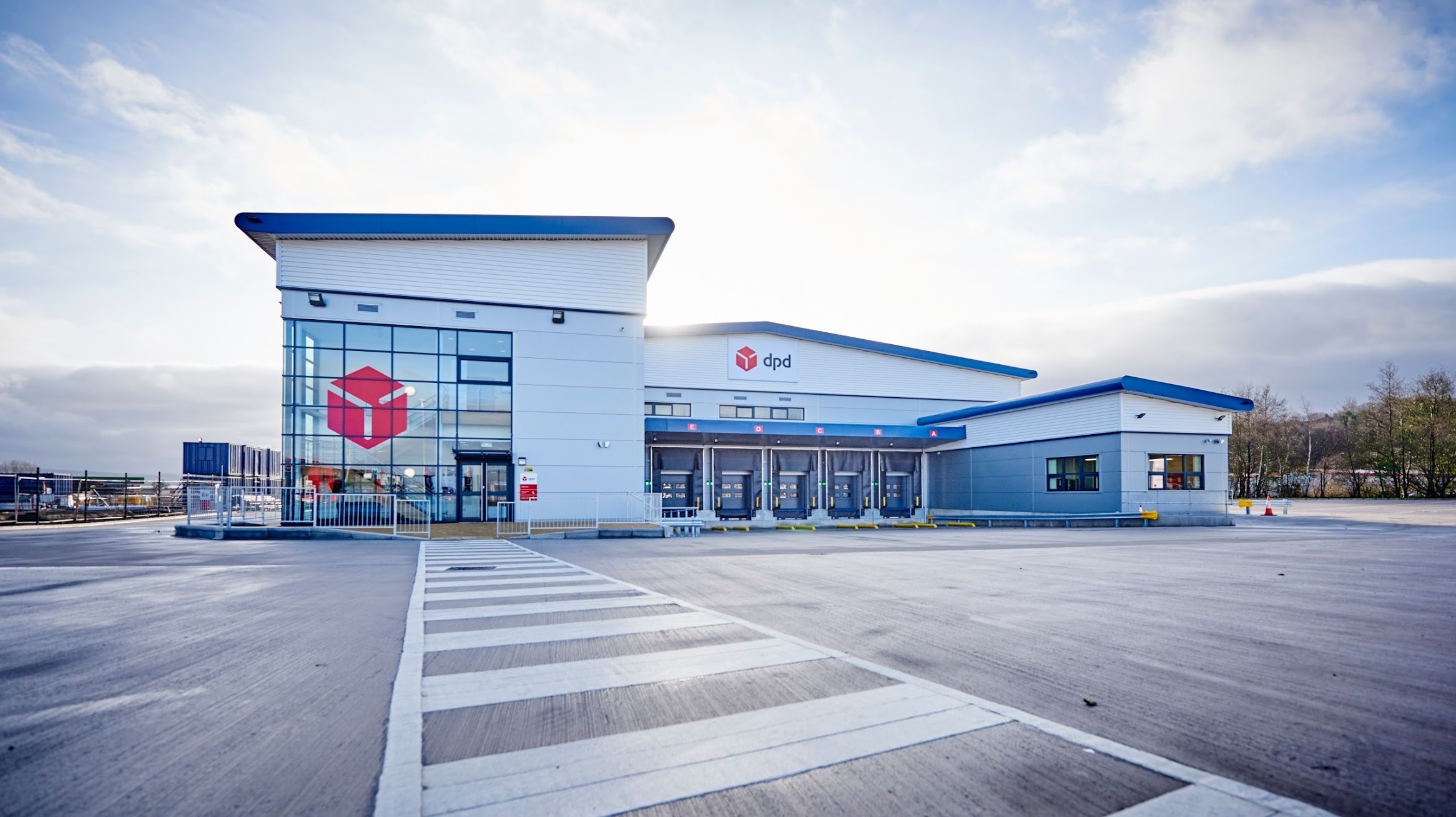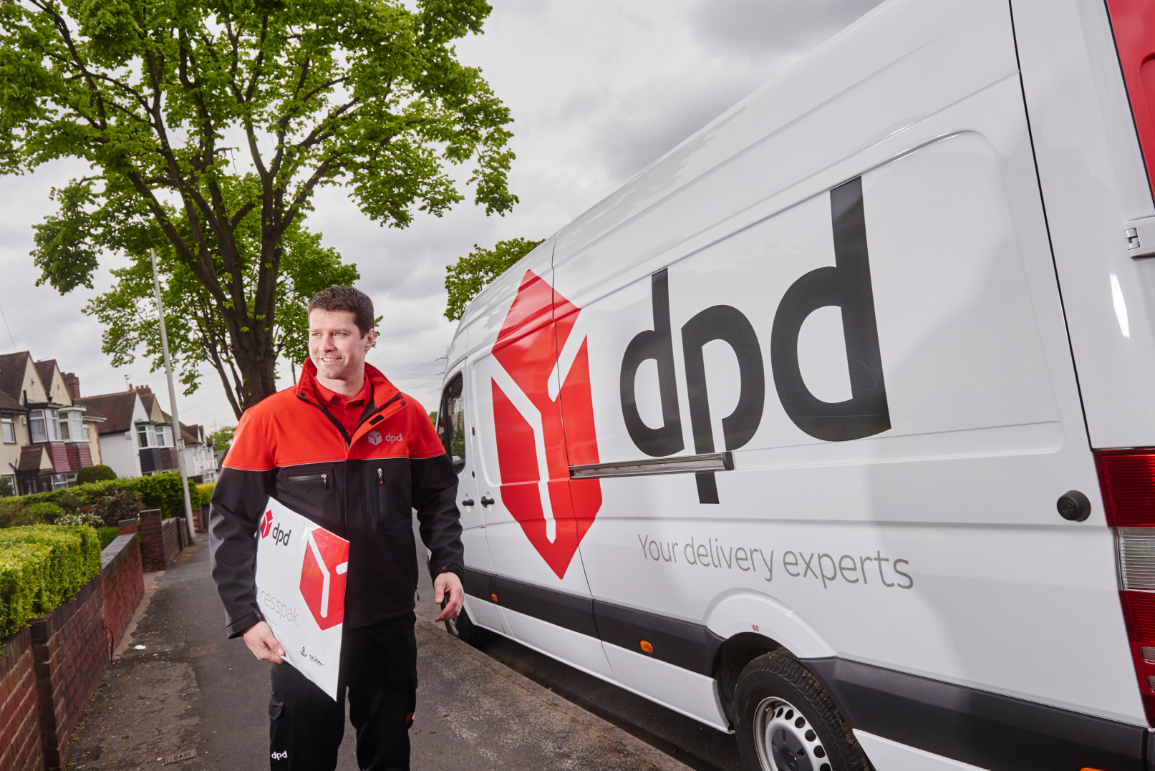Elaine Kerr, CEO of DPD UK, on Leadership & the Future of Delivery
As CEO of DPD UK, Elaine Kerr has made it her mission to create a workplace where everyone can flourish and shape their future. With a strong focus on diversity, equity, and inclusion (DEI), she has spearheaded initiatives that ensure DPD is not just a leader in logistics but also a pioneer in creating an inclusive and empowering workplace.
In this interview, Elaine discusses how DPD fosters a culture of inclusion, the importance of career development opportunities for all employees, and how leadership accountability plays a key role in ensuring a thriving workforce. She also shares insights on the company’s commitment to employee wellbeing, its approach to fostering talent, and why inclusivity remains at the heart of DPD’s success.
How does your vision as CEO, to create an open and inclusive culture where everyone can flourish and shape their future, influence your approach to leadership at DPD?
When I became CEO I had a variety of things I wanted us, as a company, to focus on and do better. Inclusivity was high on that list. I worked with the People and Talent team to refresh our approach to diversity and inclusion, such as through the creation of a dedicated D&I team headed by a specialist. The job of the D&I team isn’t so we can simply delegate the changes we want to make, but also so that they can hold us, in the senior leadership team, accountable as well.
Every one of us has our unconscious biases, and so by creating a D&I team who are experts in recognising these, they’re able to highlight things that might have otherwise been missed by myself and the leadership team. This then shapes how we run DPD, and filters back down to the rest of our people.

Can you elaborate on how DPD fosters an inclusive culture?
One of the big initiatives driven by the D&I team was the creation of our D&I Forum. Established in early 2022, the Forum is chaired by a Senior Leadership Team member, and attended by our ten D&I Ambassadors. These Ambassadors, volunteers from across the business, draw on their lived experiences and meet monthly to discuss and develop D&I strategies. Their work includes raising D&I concerns, creating training materials, and recognising our celebrating our successes.
The Forum helps organise inclusionary-related events, such as our attendance at Pride marches, and also hosts ‘All Aboard’ sessions across the business. These are seminars which discuss inclusionary topics, such as neurodiversity and gender identity, available to any staff who wish to join.
We hope that the D&I Forum’s ongoing work helps maintain our inclusive culture.
How does DPD ensure that its inclusive culture translates into tangible opportunities for all employees to grow and succeed?
Something that’s important to recognise is that everyone’s needs in a working environment are different. It’s not on employees to conform to DPD, but for DPD to support its people.
One project we’re particularly proud of is our Inspire initiative. This is where we partner with local colleges to provide supported internships for young people with special educational needs and disabilities (SEND). In the UK, the employment rate for people with a learning disability is around 5%. This stat is even worse in the region of our West Midlands hubs, where they sit at below 1%. DPD recognises that this is often because of a lack of support, and so we want to help change this.
The interns will work with us in various areas of the business, getting a taster for different career paths available to them. An important part of this support, however, is the educational aspect, where interns are taught what to expect in a workplace environment. Small, unwritten rules that neurotypical people might take for granted are easily missed by those with autism or other learning difficulties. Therefore, they are taught a variety of topics, from financial literacy, to health and safety, to understanding their employment rights, to simple workplace etiquette.
We even created a dedicated classroom for these lessons to take place, and we ensure it’s always available as a safe space for those with SEND, should they need a quiet moment to themselves. The support continues for them should they become full-time employees with us, all of whom we’re delighted to say we’ve retained. By creating a culture of inclusion like this we’re empowering all of our people to flourish, regardless of their background.

How are managers at DPD equipped to deliver your inclusionary strategy?
All managers in DPD have to undergo training around diversity and inclusion. This is separate to the ‘All Aboard’ sessions I mentioned earlier. These are face-to-face sessions that give our managers the tools to create an environment that supports and celebrates diversity and helps all of our people feel valued. These sessions can cover more niche topics, such as microaggressions, unconscious bias, the impact of banter, equality law, and inclusive language.
Each month meetings take place among the regional managers to discuss our operations, and our HR team has a seat at these meetings so they can highlight the training attendance numbers. This way we ensure that every manager is getting the training they need to best support their people.
The D&I Forum regularly solicits feedback from across the business to see where we could improve, and so the training is regularly assessed and updated with the latest best practices.
Finally, we also have our annual staff survey which asks our people how they feel working at DPD. The survey is anonymous, although each manager is sent the overall scores for their team – ensuring they are aware of any issues under their purview, without singling out individual employees. This guarantees a level of accountability among line managers to ensure that all staff, regardless of their background, are being listened to. From here we are able to make adjustments to the employee experience, including by liaising with our dedicated D&I Team.
Related: Marc Cadin, CEO of Finseca, on Leadership & the Future of Finance
How does DPD’s commitment to inclusivity and personal development align with your belief that it is an amazing place to work?
I want DPD to be the employer of choice in our industry. To be thought of like this our people need to feel welcomed and included at every level, and they need to know that they’re going places.
Our country is a diverse one, and so there’s no reason why our workforce shouldn’t reflect that. We can only convince the best talent to work for us if we’re actively demonstrating that we hear them, we see them, and we want them to be represented.
Likewise, everyone wants to know that their hard work is going to pay off. People want to see themselves grow and develop, and we know that, as a business, it’s in our interest to invest in the skills of our people. We support our people with regular training and clear, structured career progression plans so that when people come to work at DPD they know they’re going places.
Can you share examples of how DPD supports employees in realising their potential and achieving career progression?
We very much believe that investing in our people is the best way to guarantee their growth, which helps both them and us as a business. Aside from career progression reviews and regular training sessions, we also want to empower our people to pursue the skills that matter to them.
To this end, we recently introduced a new training platform that’s accessible to everyone across the business. The platform hosts hundreds of courses across a wide variety of topics and is entirely free for our people to use. Courses can include role-specific professional skills, such as people management, conflict resolution, or sales skills, but it also includes dozens of courses on hobbies and other recreational activities. In this way, the platform not only helps our people in their professional development but also serves as an employee benefit, as they can learn new things in their personal time. We want to support our people in growing in the way that matters to them, both in DPD and out, and at the end of any one of the courses the user gets a certificate and valuable CPD points, helping them develop in whichever way they feel is best.
What role does leadership play in fostering the inclusive and empowering culture you envision for DPD?
It’s really important that people see a company’s leaders live the values that we promote. It’s not enough that we simply say the words; we need to show that we take them seriously and that they influence our decision-making.
One of the great initiatives that influences the leadership at DPD is the ‘Allyship Programme’. This initiative pairs each member of the SLT with one of our D&I Ambassadors from the D&I Forum I mentioned earlier.
Each pair is assigned a specific strand of D&I to focus on, such as gender, gender identity, disability, or race and ethnicity. The Allyship Programme operates as a reverse mentorship system, where SLT members gain direct insights from D&I ambassadors and staff, allowing us to better understand the lived experiences of employees from underrepresented groups.
In this way, we in the leadership team are held accountable in keeping DPD open and inclusive.
How do you measure the success of DPD’s efforts to provide a workplace where employees feel they can shape their futures and fulfil their potential?
I think the most definitive metric on how happy people are at DPD is our retention levels. Obviously, we want our people to want to stay here for a long time – each year, we host long servers events where we celebrate those who have been here for decades, in some cases over 35 years.
Our retention levels, I’m pleased to say, have increased each year for the past three years alone, and we attribute that directly to the opportunities we offer and the environment we foster.

How does DPD’s emphasis on inclusivity and opportunity impact the overall morale and productivity of its workforce?
We have an annual survey called the Big Buzz. Over the course of a month we encourage our people to tell us how they feel about working at DPD, where we’re doing well, but also, crucially, where we could improve. This is the primary way we understand the morale of our people.
Our most recent survey, which took place towards the end of 2024, gave us some really reassuring results. We had a fantastic response rate, over 84%, but most important was the question asking our people if they agreed we highly value diversity at DPD. I’m delighted that 85% of people strongly agreed that we did. We’re very proud of this stat, but of course we want to keep pushing it even higher.
Can you discuss how DPD’s initiatives, such as wellbeing programmes and employee benefits, support your vision for an inclusive and empowering workplace?
Wellbeing initiatives form a key part of our People & Talent strategy. I truly believe that an employer has an obligation to its people to not just do the bare minimum, but go above and beyond in ensuring they’re happy and healthy. We offer a variety of benefits and perks for working at DPD, but one I think has especially made an impact is our partnership with Vitality.
Our partnership with Vitality gives our people free access to their app, which helps track the user’s stress and gives them resources to improve their mental health. It’s been a really successful partnership which our people have really gotten on board with – and last year Vitality informed us that, for the twelve months previous, our people’s ‘elevated stress levels’ had dropped by 7%. We know that there are tangible results from this on our end, too, as the number of people needing sick days citing mental health reasons, something we always encourage people to be open about, has also gone down.
What are your thoughts on the recent trend among large US companies, such as Meta, seemingly placing less emphasis on Diversity, Equity, and Inclusion (DEI)? Do you see this as a growing trend, and do you think similar shifts could occur in the UK? What impact might this have?
It’s always important to recognise that a business should be representative of the society in which it lives. We’re proud of our DEI initiatives at DPD, and it’s not something we ever want to compromise on. I can’t comment on other companies, but I can say that diversity has been good for DPD as a business, and we are happy to share what we have learned with other businesses who want to understand more about what we’ve done. Even if such a shift does take place, however, DPD won’t change. Being a welcoming place to everyone, regardless of their background, is woven into our DNA – and that’s important to us.









